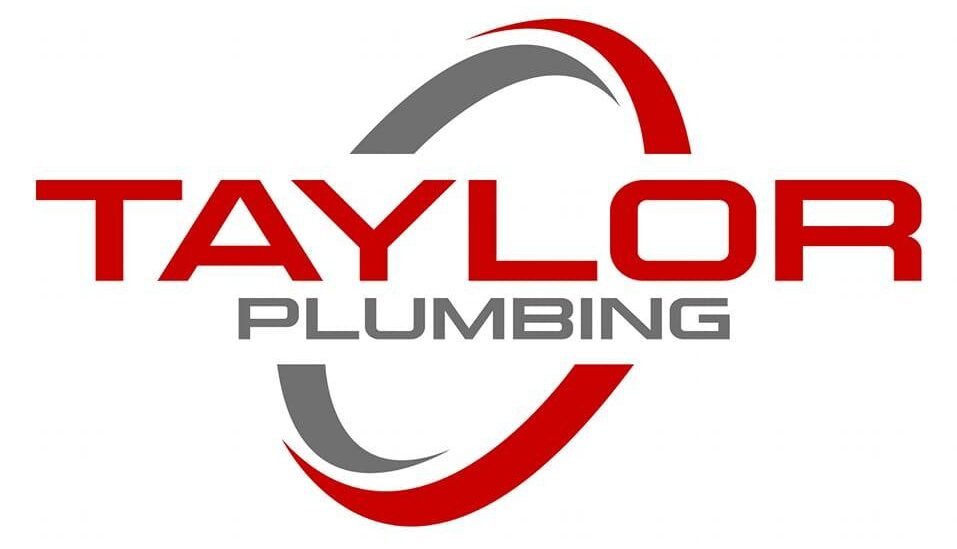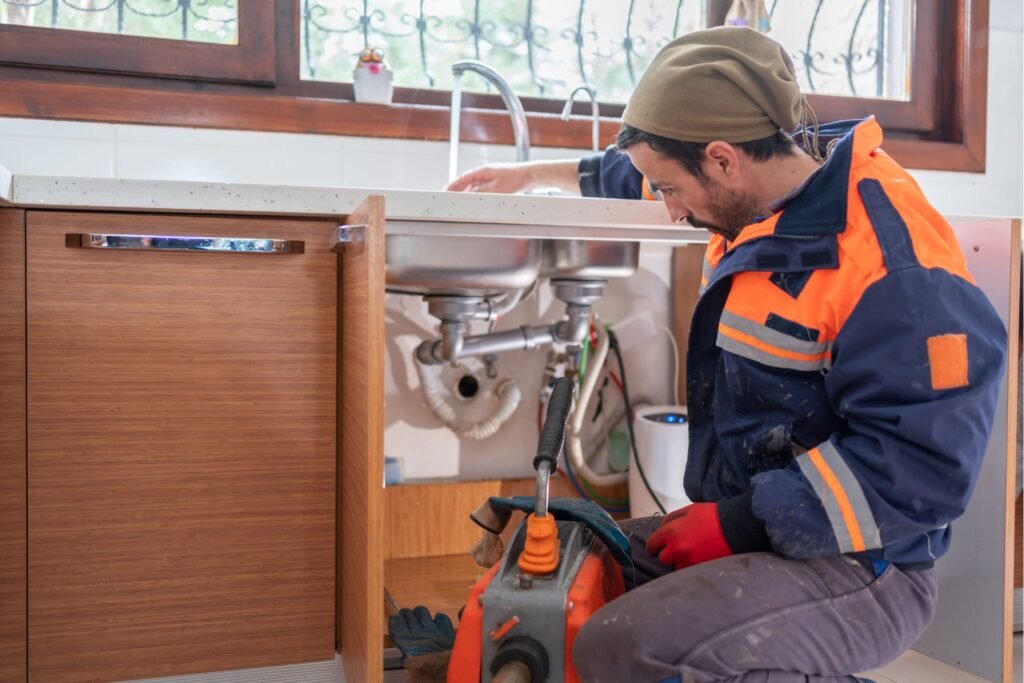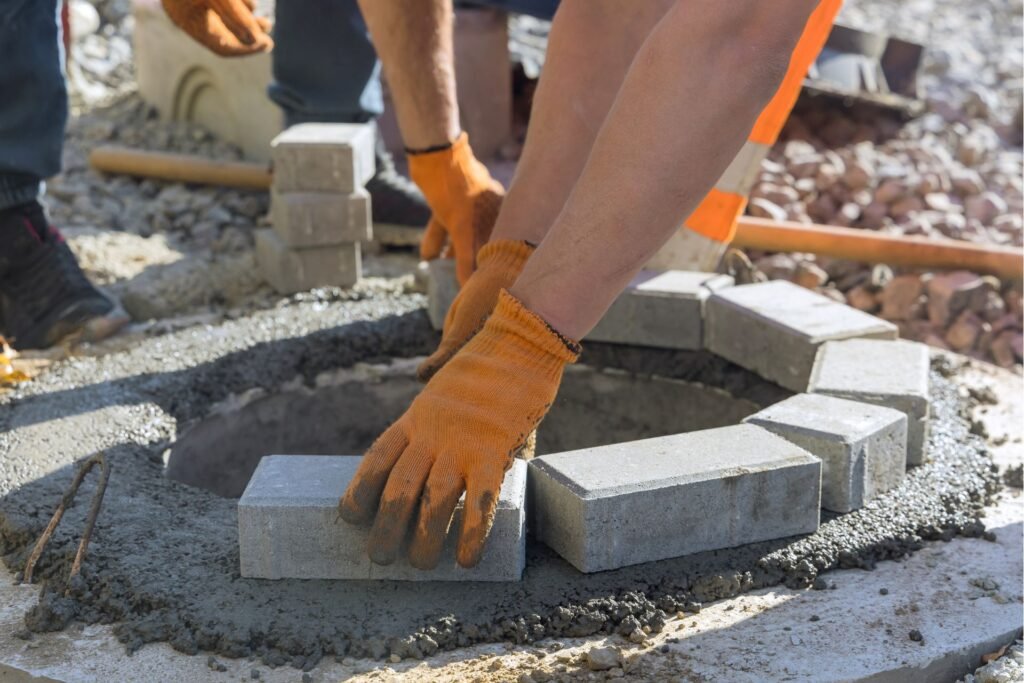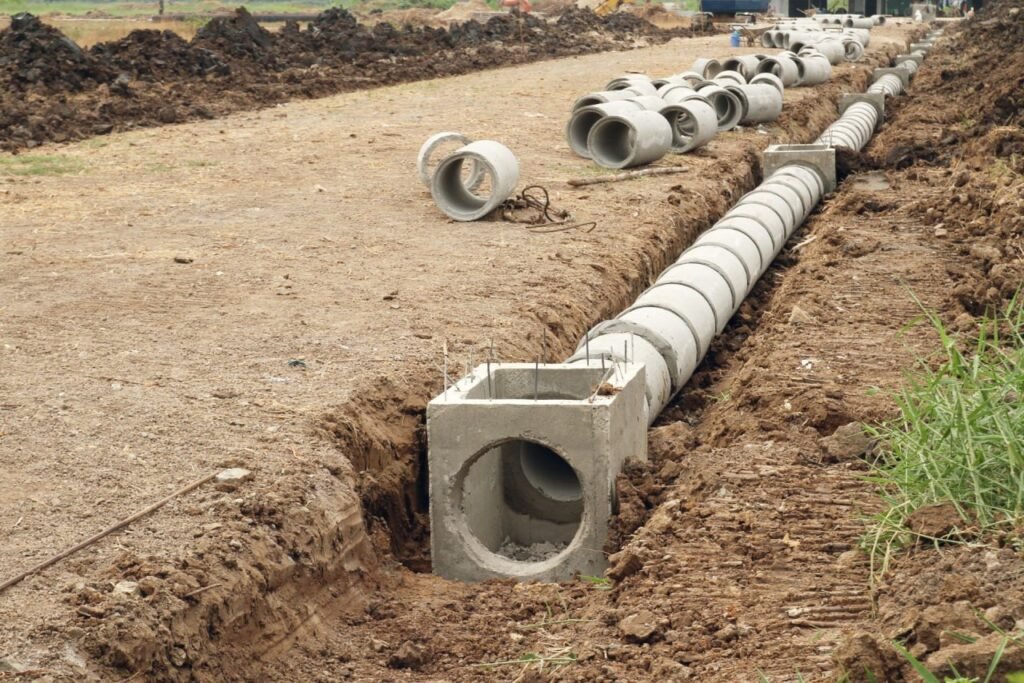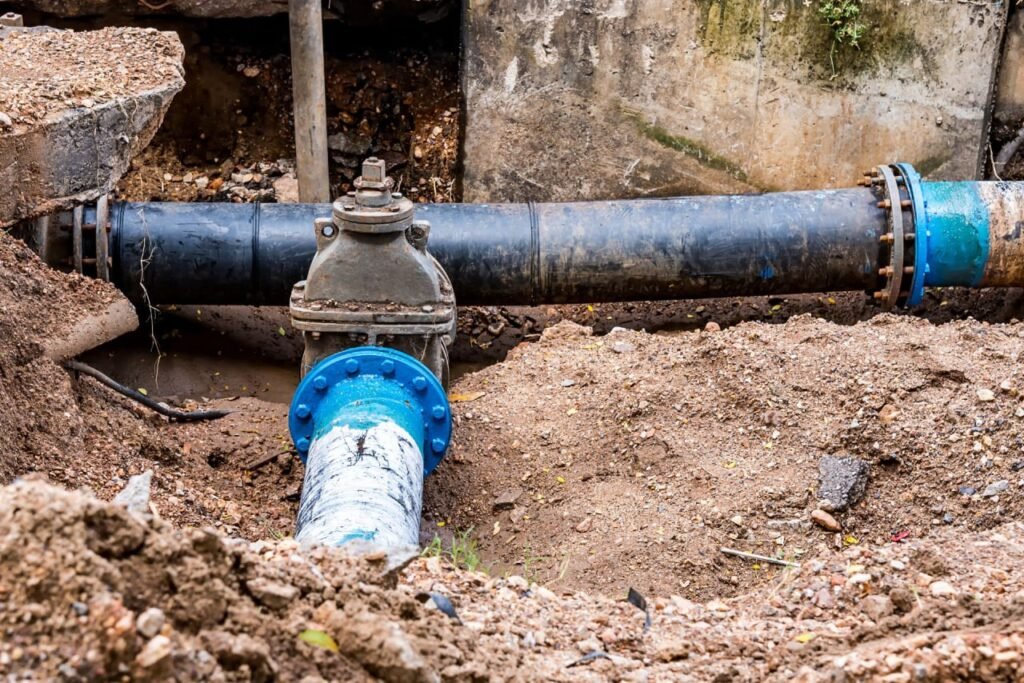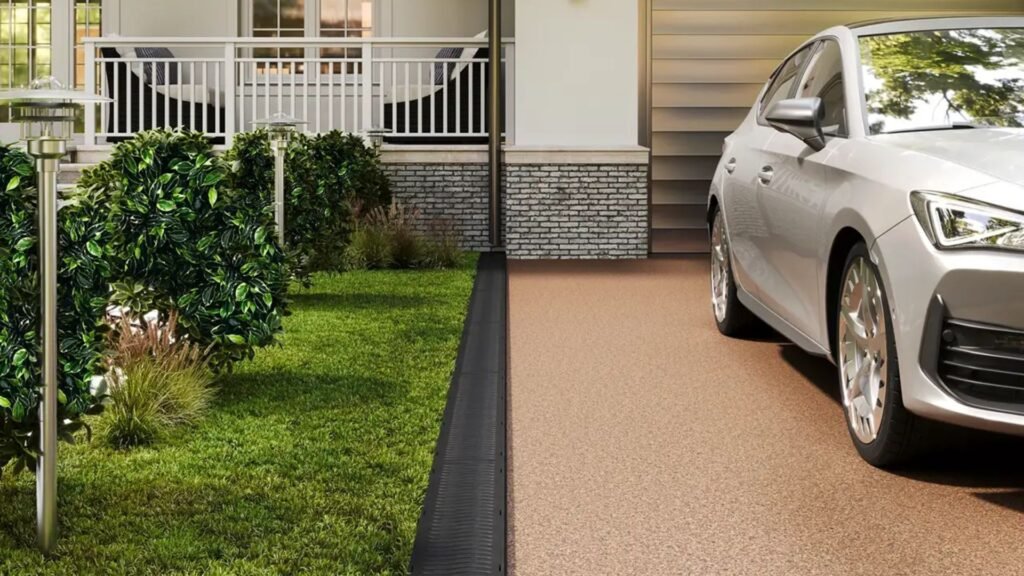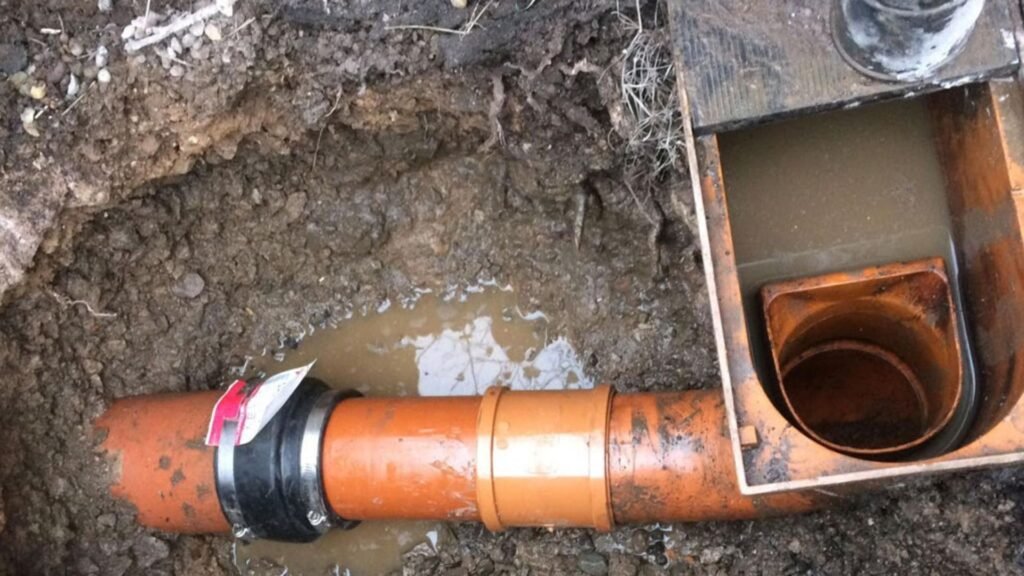Welcome to our comprehensive guide on understanding how much plumbers charge per hour in New Zealand. Whether you’re a homeowner needing a quick repair or planning a major renovation, knowing what to expect in terms of plumbing costs is crucial. In this article, we’ll explore the average hourly rates, the factors that can influence these costs, and provide practical tips on how to budget effectively for plumbing services. By the end, you’ll have a clear picture of what to anticipate when hiring a plumber, ensuring you make informed decisions that best suit your needs and budget.
The average hourly rate for plumbers in New Zealand typically ranges from $70 to $120, depending on factors such as location, job complexity, and the plumber’s experience. Rates may be higher for specialized tasks or emergency services.
- Understanding Plumbing Costs In NZ
- Average Hourly Rates For Plumbers In NZ
- Factors Affecting Plumbing Charges
- Examples Of Typical Plumbing Costs In NZ
- How To Get An Accurate Plumbing Quote
- Budgeting For Plumbing Costs
- Tips For Reducing Plumbing Costs
- When To Call A Plumber
- FAQs: About How Much Do Plumbers Charge Per Hour In NZ
- How much do plumbers typically charge per hour in New Zealand?
- Why do plumbing rates vary across different regions in New Zealand?
- Are there additional costs beyond the hourly rate for plumbing services?
- How can I get an accurate quote for plumbing services?
- Is it cheaper to hire a plumber during off-peak hours?
- What should I consider when comparing quotes from different plumbers?
- Can I negotiate the hourly rate with a plumber?
- Are there any risks associated with hiring a cheaper plumber?
- What can I do to minimize plumbing costs?
- When should I call a professional plumber instead of doing it myself?
- Conclusion
Understanding Plumbing Costs In NZ
General Overview
Plumbing services in New Zealand have evolved significantly over the years, reflecting both the changing needs of the population and advancements in technology. Historically, plumbing in New Zealand began with basic systems designed to manage water supply and waste disposal in a rudimentary manner. As cities expanded and the population grew, the demand for more sophisticated plumbing systems increased, leading to the development of more advanced infrastructure. Today, plumbing is a critical aspect of both residential and commercial properties, with services ranging from simple repairs to complex installations.
In New Zealand, the plumbing industry is regulated to ensure that all work meets stringent safety and quality standards. Licensed plumbers are required to adhere to these regulations, which helps maintain the integrity of water supply systems and ensures that waste is properly managed. The importance of hiring a qualified and licensed plumber cannot be overstated, as it guarantees that all work is done in compliance with local laws and standards, reducing the risk of future issues.
Why Hourly Rates Matter
Hourly rates are a key factor to consider when budgeting for plumbing services in New Zealand. Unlike flat rates, which are often applied to straightforward tasks, hourly rates provide a more flexible pricing structure that can accommodate the varying complexity of different jobs. For small repairs, such as fixing a leaky tap or unclogging a drain, an hourly rate ensures that you only pay for the actual time spent on the job. This can be particularly cost-effective if the repair is quick and uncomplicated.
However, for larger projects, such as installing a new bathroom or upgrading an entire plumbing system, hourly rates offer transparency and allow for more accurate cost estimation. With an hourly rate, homeowners and businesses can better manage their budgets by tracking the time spent on each phase of the project. This approach also encourages efficiency, as both the plumber and the client have a clear understanding of the costs associated with each hour of work.
Moreover, understanding the significance of hourly rates can help you make informed decisions when selecting a plumber. It’s important to compare rates across different service providers while also considering their experience, qualifications, and reputation. Remember, the lowest hourly rate may not always be the best option if it compromises the quality of work or leads to longer completion times.
Common Plumbing Services
Plumbing services in New Zealand cover a wide range of needs, from routine maintenance to emergency repairs. Some of the most common services provided by plumbers include:
1. Fixing Leaks: Leaks can occur in various parts of the plumbing system, including pipes, faucets, and toilets. A licensed plumber can quickly identify the source of the leak and make the necessary repairs to prevent water damage and wastage.
2. Installing Fixtures: Whether you’re renovating your kitchen or bathroom, or building a new home, installing fixtures such as sinks, toilets, and showers is a common service offered by plumbers. Proper installation is crucial to ensure that these fixtures function correctly and efficiently.
3. Emergency Services: Plumbing emergencies, such as burst pipes or overflowing toilets, require immediate attention to prevent further damage to your property. Many plumbers offer 24/7 emergency services to address these urgent issues.
4. Clearing Blocked Drains: Blocked drains are a common issue that can lead to unpleasant odors, slow drainage, and even flooding. Plumbers use specialized tools and techniques to clear blockages and restore normal flow.
5. Hot Water System Installation and Repair: Hot water is essential for daily living, and plumbers are often called upon to install, repair, or replace hot water systems. This service includes working with different types of systems, such as electric, gas, and solar-powered units.
Understanding these common services can help you better communicate your needs to a plumber and ensure that you receive the appropriate assistance for your specific situation. Whether you require a simple repair or a major installation, knowing what to expect can lead to a smoother and more successful experience.
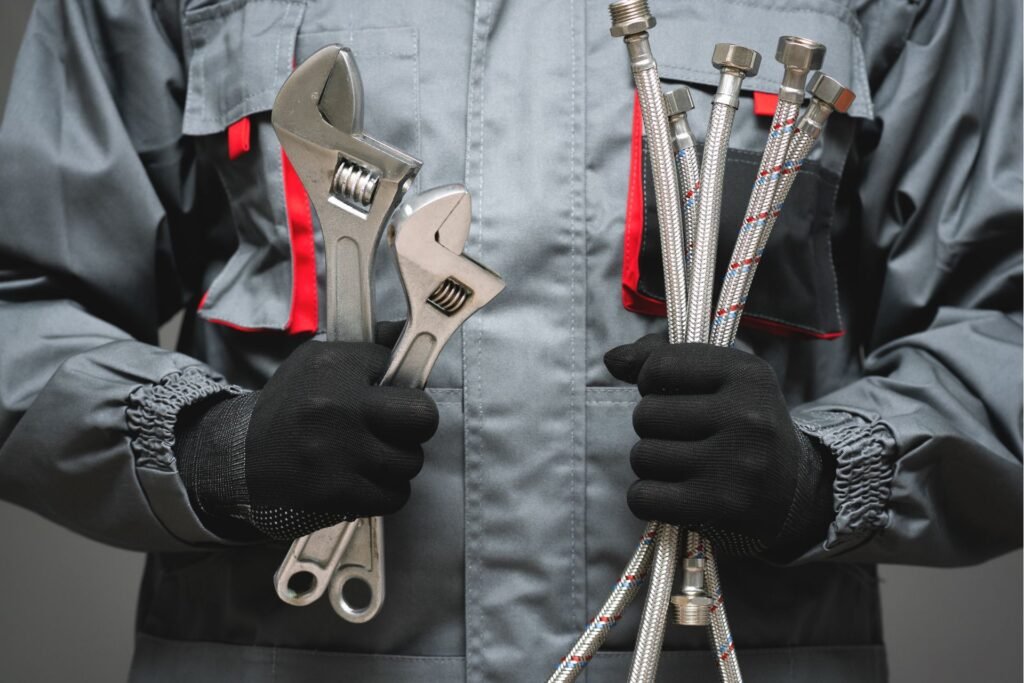
Average Hourly Rates For Plumbers In NZ
When budgeting for plumbing services in New Zealand, understanding the typical hourly rates plumbers charge is essential. Rates can vary widely depending on several factors, including location, type of work, and the plumber’s expertise. Here’s a breakdown of what you can expect when hiring a plumber in NZ.
National Average
The average hourly rate for plumbers in New Zealand typically ranges from $70 to $120 per hour. This broad range reflects the diversity of plumbing jobs, from simple repairs to more complex installations or maintenance work. For standard plumbing tasks like fixing leaks, unblocking drains, or installing basic fixtures, most homeowners can expect to pay within this range.
It’s important to note that these figures are an average. Depending on the plumber’s experience, reputation, and the specific requirements of your job, rates can sometimes fall outside this range. Always ask for a detailed quote upfront to avoid any surprises.
Regional Differences
Plumbing rates in New Zealand are not uniform across the country. Regional variations can significantly impact the cost, with urban areas generally commanding higher rates than rural locations.
- Auckland: As the largest city in New Zealand, Auckland typically has higher living and business costs, which is reflected in plumbing rates. Homeowners in Auckland might expect to pay closer to the upper end of the national average, with rates often ranging from $90 to $120 per hour.
- Wellington: In the capital city, plumbing rates are slightly lower than in Auckland but still on the higher side compared to other regions. The average hourly rate for plumbers in Wellington is usually between $80 and $110.
- Christchurch: In Christchurch, rates are generally more moderate, reflecting the city’s slightly lower cost of living. You can expect to pay between $70 and $100 per hour for plumbing services here.
In contrast, rural areas and smaller towns often see lower hourly rates. Plumbers in these regions might charge closer to the lower end of the scale, typically between $60 and $90 per hour. However, availability may be limited, and travel costs could be added if a plumber needs to come from a neighboring town or city.
Specialized Plumbing Work
While standard plumbing tasks fall within the average rates mentioned, specialized plumbing services often come with higher costs due to the expertise and equipment required.
- Gas Fitting: Plumbers who are certified gas fitters typically charge more, with rates ranging from $100 to $140 per hour. Gas fitting requires specialized skills and certifications, and the work often involves strict safety regulations.
- Heating Systems: Installing or repairing heating systems, such as underfloor heating or central heating systems, also tends to be more expensive. This type of work can command rates from $110 to $150 per hour, depending on the complexity of the system and the plumber’s experience.
- Emergency Services: If you require a plumber outside of normal working hours, expect to pay a premium. Emergency plumbing services can easily push the hourly rate up by 50% or more, with rates reaching $150 to $200 per hour, especially during weekends or holidays.
Understanding the average hourly rates for plumbers in New Zealand can help you budget more effectively for any upcoming plumbing work. Keep in mind the variations in rates based on your location and the specific nature of the job. Whether you need a basic repair or specialized service, knowing what to expect can make the process smoother and more predictable. Always seek multiple quotes to ensure you’re getting fair value for the service you require.

Factors Affecting Plumbing Charges
When it comes to plumbing services, several factors can influence the final cost. Understanding these elements can help you better anticipate potential expenses and make informed decisions. Let’s break down each factor in detail:
Experience and Qualifications
The experience and qualifications of a plumber are significant determinants of their hourly rate. A plumber’s level of expertise is often reflected in the quality of their work, their efficiency, and their ability to handle complex tasks.
Licensed Plumber vs. Apprentice
A licensed plumber typically has several years of experience, formal training, and a certification to back their skills. This level of expertise allows them to command higher rates, as they can handle a wider range of tasks with a higher degree of proficiency. On the other hand, an apprentice is still in the learning phase, working under the supervision of a licensed plumber. While apprentices may offer lower rates, the trade-off is usually in the form of longer job times or a limited scope of work they can perform independently.
In essence, while hiring a licensed plumber might cost more upfront, the quality, speed, and reliability of their work often justify the higher rate.
Time of Service
The timing of when you require plumbing services can significantly impact the cost. Plumbers often charge premium rates for services outside regular business hours.
After-Hours, Weekends, and Emergency Call-Outs
If you have a plumbing issue that arises late at night, on weekends, or during holidays, you can expect to pay more. Emergency call-outs, in particular, can be quite costly, as plumbers may need to drop other jobs or adjust their schedules to attend to your urgent needs. This premium is not just about inconvenience; it’s also about the rapid response and the ability to mitigate potentially serious damage that could occur if the issue is not addressed promptly.
By scheduling non-urgent plumbing work during regular hours, you can avoid these additional charges.
Job Complexity
The complexity of the plumbing job is another critical factor in determining cost. Simple tasks will naturally be less expensive than more involved projects.
Examples of Job Complexity
For instance, a simple task like fixing a leaky faucet or unclogging a drain might only take a plumber an hour or less, leading to a lower overall cost. However, more complex jobs, such as replacing a section of damaged pipe, installing a new water heater, or rerouting plumbing for a renovation, require more time, specialized tools, and expertise. These jobs not only take longer to complete but also require a higher level of skill, which justifies a higher hourly rate.
Complexity also adds to the unpredictability of the job. What might seem like a straightforward repair could reveal underlying issues that extend the scope and cost of the work.
Material Costs
Materials are another significant factor in plumbing charges. The type and quality of materials used can greatly influence the final bill.
High-End Fixtures and Pipe Quality
If your job requires high-end fixtures, such as luxury faucets or advanced filtration systems, these will naturally increase the material costs. Similarly, the type of piping material—whether it’s basic PVC or more durable copper—can add to the overall expense. High-quality materials often come with a higher upfront cost but can save you money in the long run by reducing the need for future repairs or replacements.
Discussing material options with your plumber before the job begins can help you find a balance between quality and cost.
Geographic Location
Where you live can also play a role in how much you pay for plumbing services. Geographic location affects not only the base rates but also travel expenses for the plumber.
Remote or Hard-to-Reach Areas
If you live in a rural area, far from the plumber’s base of operations, or in a location that’s difficult to access, you may be charged extra for travel time and fuel costs. Additionally, areas with a higher cost of living, such as major cities, often have higher rates due to the increased overhead costs that plumbers in those regions face.
Conversely, if you’re in a densely populated urban area with many competing plumbing services, you might find more competitive pricing. However, even in urban areas, emergency call-outs or services in hard-to-access locations, like high-rise apartments, can still carry a premium.
By understanding these factors—experience and qualifications, time of service, job complexity, material costs, and geographic location—you can better anticipate plumbing costs and plan your budget accordingly. When hiring a plumber, it’s crucial to consider not just the hourly rate, but also the value you’re receiving in terms of expertise, efficiency, and quality of materials. This approach ensures that you’re not only paying for a service but also investing in the longevity and reliability of your plumbing system.

Examples Of Typical Plumbing Costs In NZ
Understanding the cost of plumbing services in New Zealand can help you budget effectively for your next project, whether it’s a minor repair or a large-scale renovation. Here’s a breakdown of what you might expect to pay for different types of plumbing work, based on the size and complexity of the job.
Small Jobs
Small plumbing tasks are typically quick fixes that can be completed within a few hours. These might include:
- Fixing a Dripping Tap: A common issue in many homes, a dripping tap might seem minor but can waste a significant amount of water over time. The cost for fixing a tap usually involves a plumber’s hourly rate, which can range from $80 to $150, depending on your location and the plumber’s experience. Additionally, there may be a small charge for materials, such as washers or O-rings, bringing the total cost to around $100 to $200.
- Unclogging a Drain: A clogged drain is another frequent issue that plumbers deal with. The cost for this service can vary depending on the severity of the blockage and the method required to clear it. For a simple clog that can be fixed with a plunger or a hand auger, you might pay around $150 to $250. If the plumber needs to use more advanced equipment like a hydro-jet or drain snake, the cost could increase to $300 or more.
These small jobs are usually straightforward and can be completed quickly, often within an hour or two.
Medium-Sized Jobs
Medium-sized plumbing jobs involve more complexity and time than small repairs. These tasks might require several hours of work and include:
- Installing a New Toilet: Replacing an old toilet or installing a new one involves more than just swapping out fixtures. The plumber will need to disconnect and remove the old toilet, install the new one, and ensure everything is sealed and functioning correctly. This job usually takes about 2 to 4 hours, with costs ranging from $400 to $800, depending on the complexity and any additional work required, such as repairing or replacing flooring around the toilet.
- Replacing a Section of Piping: Over time, pipes can corrode or leak, requiring sections to be replaced. This job’s cost depends on the pipe’s material (e.g., copper, PVC), the pipe length, and its location (e.g., underground, inside walls). On average, replacing a section of piping might take 4 to 8 hours, with costs ranging from $600 to $1,200, including both labor and materials.
These medium-sized jobs require more planning and skill, reflecting the higher cost and longer time commitment.
Large Projects
Large plumbing projects involve extensive work and often require the coordination of multiple tradespeople. These could include:
- Full Bathroom Renovations: Renovating a bathroom involves more than just plumbing; it’s a comprehensive project that includes installing new fixtures, rerouting pipes, and ensuring proper drainage. The plumbing aspect alone can take anywhere from 20 to 40 hours, depending on the renovation’s complexity. Costs for plumbing in a full bathroom renovation typically range from $3,000 to $8,000, depending on the quality of fixtures, the need for new pipes, and the project’s overall scope.
- New Plumbing Installations for Homes: Installing plumbing in a new home is a large-scale project that involves laying pipes, installing water heaters, and connecting all plumbing fixtures. This job can take several weeks to complete, depending on the home’s size and design. The cost for new plumbing installations can vary widely, but for a standard-sized home, you might expect to pay between $10,000 and $20,000 or more, including labor and materials.
Large projects require significant time and investment, but they are crucial for ensuring your home’s plumbing system is safe, efficient, and up to code.
By understanding the typical costs associated with different plumbing jobs, you can better plan for your next repair or renovation, ensuring that you get the best value for your money. Whether you’re dealing with a small fix or a major project, it’s always wise to get multiple quotes and work with reputable plumbers to ensure quality work at a fair price.
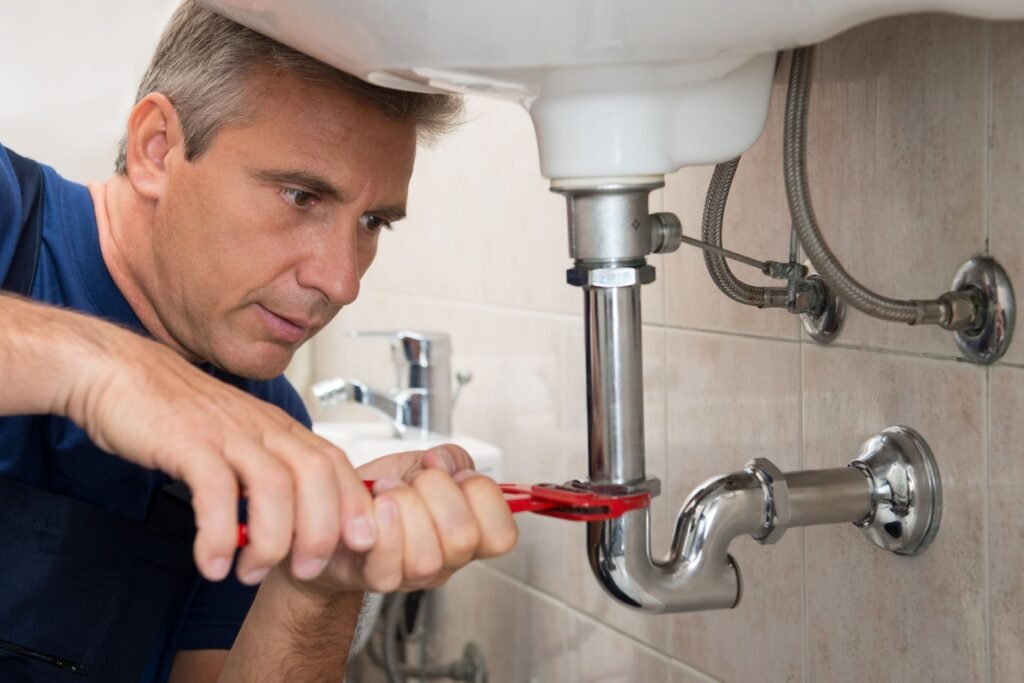
How To Get An Accurate Plumbing Quote
When you’re planning any plumbing work, getting an accurate quote is crucial to ensure that the project stays within budget and that there are no surprises along the way. Here’s a breakdown of how to request and evaluate plumbing quotes effectively.
Requesting a Quote
The first step in getting an accurate plumbing quote is to be thorough and clear when making your request. Whether you’re reaching out to a plumber via phone, email, or through an online form, it’s essential to provide as much detail as possible about the job. Here are some tips to help you request a detailed quote:
1. Describe the Problem or Project in Detail: Start by explaining the plumbing issue or the scope of the project. If it’s a repair, describe what’s wrong and any symptoms you’ve noticed. For installations or renovations, outline what needs to be done, including the type of fixtures or materials you want to use.
2. Ask for a Breakdown: Request that the plumber provides a quote that includes a detailed breakdown of costs. This should cover labor, materials, and any additional expenses like travel or permit fees.
3. Specify Your Timeline: If you have a deadline or a preferred timeframe for the work, make sure to communicate this upfront. Knowing your schedule helps the plumber assess whether they can accommodate your needs and may influence the cost.
4. Inquire About Payment Terms: Clarify how and when payments are expected. Some plumbers may require a deposit upfront, with the balance due upon completion, while others might offer payment plans for larger projects.
By being clear and detailed in your request, you set the stage for a more accurate and reliable quote.
What to Look For
When you receive a plumbing quote, it’s important to review it carefully to ensure all aspects of the job are covered. Here’s what to look for in a detailed quote:
1. Hourly Rate: This is one of the most critical components. Make sure the hourly rate is clearly stated and that you understand how it applies—whether it’s for every hour on the job or just for labor.
2. Materials and Parts: The quote should list all the materials and parts that will be used in the job, along with their costs. This includes everything from pipes and fittings to fixtures and any special equipment required.
3. Estimated Time to Completion: An accurate quote should provide an estimate of how long the job will take. This helps you understand the labor costs and plan for any disruption to your home life.
4. Additional Costs: Look for any extra charges that might be added, such as emergency call-out fees, travel expenses, or costs for permits. These should be explicitly listed in the quote to avoid surprises.
5. Warranty Information: A reputable plumber should offer some form of warranty or guarantee on their work. Ensure that the terms of this warranty are clearly outlined in the quote.
By ensuring all these details are included, you can feel confident that the quote reflects the true cost of the job.
Comparing Quotes
Once you have quotes from several plumbers, it’s time to compare them to find the best option. This isn’t just about choosing the cheapest quote—it’s about finding the best value for your money. Here’s how to compare quotes effectively:
1. Look Beyond the Bottom Line: Don’t just focus on the total cost. Consider what’s included in the quote, especially in terms of materials and labor. A slightly higher quote might include better-quality materials or a more experienced plumber.
2. Check for Hidden Fees: Scrutinize each quote for any hidden fees or charges that might not be immediately apparent. Some plumbers might quote a low base rate but then add extra costs for things like disposal of old materials or additional labor.
3. Evaluate Experience and Reputation: Consider the plumber’s experience and reputation in addition to the cost. A well-established plumber with positive reviews might charge more, but their expertise could save you money in the long run by avoiding mistakes or rework.
4. Ask Questions: If something in the quote isn’t clear, don’t hesitate to ask for clarification. A good plumber will be happy to explain their pricing and make sure you understand what you’re paying for.
5. Consider Availability: Sometimes, the best plumber might not be the cheapest or the fastest, but they might be the one who can get to your job when you need it done. Balance cost with availability and your own timeline needs.
By taking the time to request detailed quotes and compare them carefully, you can make an informed decision that ensures your plumbing job is completed to a high standard without breaking the bank.

Budgeting For Plumbing Costs
Setting a Budget
When it comes to plumbing work, setting a realistic budget is crucial to avoid unexpected financial stress. Start by identifying the scope of the plumbing project, whether it’s a minor repair, a major renovation, or new installation work. Consider the materials, labor, permits, and any additional services that might be required. Research average plumbing costs in your area to get a sense of what to expect, and don’t forget to factor in potential unexpected expenses, such as outdated piping that needs replacement or unforeseen issues that may arise once the work begins. A thorough assessment at the outset can save you from nasty surprises later on.
To set a realistic budget, begin by getting detailed quotes from multiple plumbers. These quotes should break down costs by labor, materials, and any other associated fees, like travel or waste disposal. Comparing these quotes will give you a better understanding of the market rate and help you avoid overpaying. It’s also wise to build a cushion into your budget for unforeseen expenses. Experts recommend adding an extra 10-20% to your initial estimate to cover any unexpected costs that might arise. This way, you’re better prepared for any bumps in the road, ensuring that the project stays on track financially.
Contingency Planning
Even with the best-laid plans, unexpected issues can surface during plumbing work. Whether it’s discovering hidden water damage or realizing that your pipes need more extensive work than initially thought, having a contingency fund can be a lifesaver. This fund acts as a financial safety net, allowing you to handle unexpected expenses without derailing your entire project or stretching your finances too thin.
A good rule of thumb is to set aside an additional 10-15% of your overall budget as a contingency. This extra fund gives you peace of mind, knowing that you’re prepared for the unexpected. Remember, it’s always better to have a contingency plan and not need it than to find yourself in a situation where unplanned expenses crop up and you’re left scrambling to find the funds.
DIY vs. Professional Plumbing
One of the biggest decisions you’ll face when budgeting for plumbing work is whether to tackle the job yourself or hire a professional. DIY plumbing can be tempting, especially for minor repairs or upgrades, as it often seems like a cost-effective solution. However, while DIY may save you money upfront, it comes with its own set of risks. If the job isn’t done correctly, it can lead to more significant issues down the line, resulting in higher costs to fix mistakes.
On the other hand, hiring a professional plumber ensures that the job is done correctly the first time, adhering to local codes and regulations. Professionals bring expertise and experience to the table, which can save you time and stress. They also come equipped with the right tools and materials to handle the job efficiently. While the initial cost might be higher than a DIY approach, the long-term savings, peace of mind, and quality of work often outweigh the expense.
When deciding between DIY and professional plumbing, consider the complexity of the job. Simple tasks like unclogging a drain or fixing a leaky faucet might be manageable on your own, but more extensive projects, like installing new plumbing or repairing significant leaks, are best left to the professionals. Weighing the pros and cons carefully will help you make an informed decision that aligns with your budget and ensures the best outcome for your plumbing project.
In conclusion, budgeting for plumbing costs requires careful planning and consideration of all potential expenses. By setting a realistic budget, preparing for unexpected costs with a contingency fund, and deciding whether to DIY or hire a professional, you can navigate your plumbing project with confidence, ensuring that it stays within budget and meets your needs.

Tips For Reducing Plumbing Costs
Preventative Maintenance
Regular maintenance is one of the most effective strategies to reduce long-term plumbing costs. Just like your car needs regular oil changes and check-ups, your plumbing system benefits from consistent attention to prevent small issues from becoming major, expensive problems. Simple actions such as inspecting for leaks, ensuring your drains are clear, and checking water pressure regularly can save you from costly repairs down the line. For instance, identifying a slow drip from a faucet or a minor leak in a pipe early on can prevent significant water damage and the need for extensive repairs. Moreover, investing in routine maintenance from a professional plumber can help identify potential issues before they escalate, providing peace of mind and long-term savings.
Efficient Planning
When it comes to plumbing work, efficiency is key to minimizing costs. One of the best ways to achieve this is by planning your plumbing needs in advance. If you have several minor plumbing issues, consider bundling them into one service call. For example, if you need to fix a leaking tap, replace a toilet, and install a new sink, having these tasks done in a single visit can reduce the overall labor cost. Additionally, clear communication with your plumber about what needs to be done can help them prepare appropriately, reducing time spent on the job and, consequently, the cost. Being organized and proactive in scheduling plumbing work, rather than waiting until an emergency arises, can also lead to more cost-effective outcomes.
Seasonal Discounts and Promotions
Timing your plumbing projects to coincide with seasonal discounts and promotions is another savvy way to cut costs. Plumbers, like many other service providers, may offer discounts during slower periods, typically in the off-peak seasons like late autumn or winter when demand is lower. By scheduling non-urgent plumbing work during these times, you can take advantage of lower rates or special offers. Keep an eye out for promotions or ask your local plumbers if they have any upcoming discounts. Additionally, some plumbers may offer package deals if you require multiple services, which can further reduce your overall expenditure.
Incorporating these strategies—regular maintenance, efficient planning, and taking advantage of seasonal discounts—can lead to significant savings on your plumbing costs, while also ensuring your plumbing system remains in good working order.

When To Call A Plumber
Common Signs You Need a Plumber
Knowing when to call a plumber can save you time, money, and a lot of frustration. Some issues around the house might seem minor at first but can quickly escalate into major problems if left unchecked. Here are some common signs that it’s time to bring in a professional:
- Persistent Leaks: A small drip from a faucet might not seem like a big deal, but even minor leaks can lead to significant water waste and higher utility bills over time. If you’ve noticed that a leak continues despite your best efforts to fix it, or if new leaks are appearing, it’s a clear signal that a plumber’s expertise is needed. Leaks that persist can indicate underlying issues with your pipes or fixtures that require more than a simple patch-up.
- Low Water Pressure: Experiencing weak water flow in your sinks or showers can be a sign of a more serious plumbing problem. While it could be something as simple as a clogged aerator, low water pressure often points to issues like pipe corrosion, hidden leaks, or problems with the municipal water supply. A professional plumber can diagnose the root cause and restore your water pressure to normal levels, ensuring your plumbing system functions properly.
- Strange Noises: Hearing gurgling, banging, or other unusual sounds from your pipes can be unsettling. These noises might be caused by air trapped in the pipes, blockages, or even problems with the water heater. Ignoring these sounds can lead to bigger issues down the road, such as burst pipes or a failing water heater. A plumber can investigate these noises, identify their source, and take the necessary steps to prevent further damage.
These are just a few of the common signs that indicate it’s time to call a plumber. Recognizing these issues early on can help prevent more extensive and costly repairs later.
DIY Risks
In an age of YouTube tutorials and DIY blogs, it’s tempting to try your hand at fixing plumbing problems yourself. While tackling minor repairs on your own might seem like a good way to save money, there are significant risks involved if you don’t have the proper knowledge or tools.
- Worsening the Problem: Without professional training, it’s easy to make a small problem much worse. What starts as a simple fix could lead to more significant damage, such as burst pipes, flooding, or damage to your home’s structural integrity. These mistakes can result in expensive repairs that far exceed the cost of hiring a plumber in the first place.
- Safety Hazards: Plumbing involves more than just water; it can also involve working with gas lines, electrical components, and hazardous materials. For example, incorrectly handling a gas line or failing to shut off the water properly can pose serious safety risks, including gas leaks, electrical shocks, or water damage. Plumbers are trained to navigate these dangers safely and effectively, ensuring that repairs are done correctly without putting you or your home at risk.
- Voiding Warranties: Many plumbing fixtures and appliances come with warranties that are voided if repairs aren’t performed by a licensed professional. Attempting a DIY repair could mean losing your warranty protection, leaving you on the hook for the full cost of future repairs or replacements. Hiring a plumber ensures that your warranties remain intact, giving you peace of mind.
In conclusion, while DIY projects can be satisfying, plumbing is one area where it’s often best to leave the work to the professionals. Recognizing when to call a plumber can save you from unnecessary headaches and ensure that your home’s plumbing system remains in top condition.
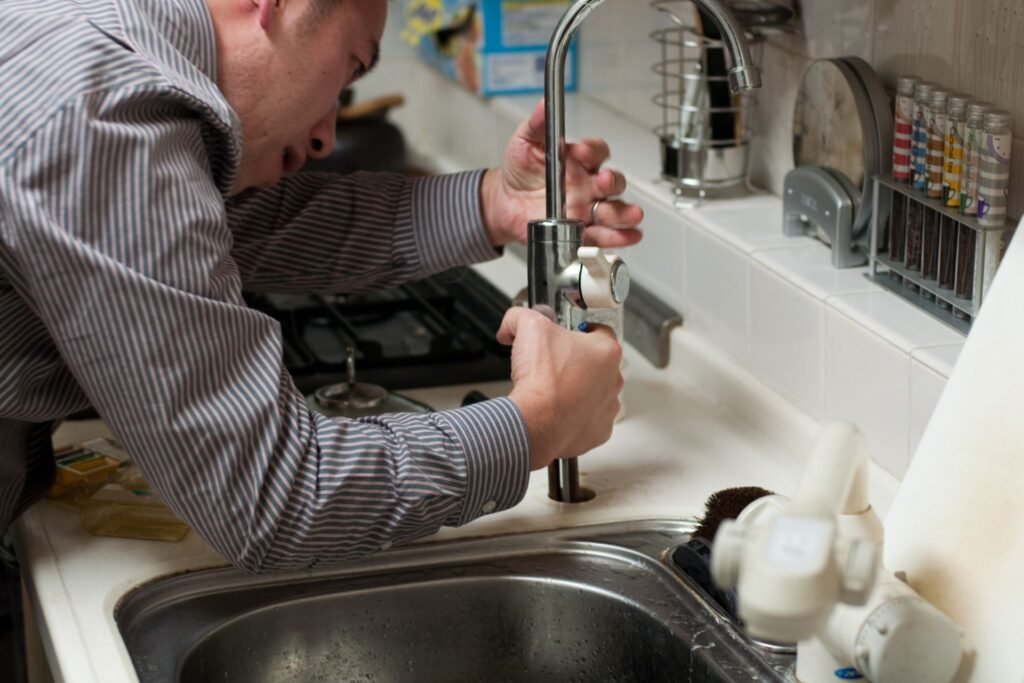
FAQs: About How Much Do Plumbers Charge Per Hour In NZ
How much do plumbers typically charge per hour in New Zealand?
On average, plumbers in New Zealand charge between $70 and $120 per hour. However, rates can vary based on factors such as location, job complexity, and the plumber’s experience.
Why do plumbing rates vary across different regions in New Zealand?
Plumbing rates vary across regions due to factors like the cost of living, demand for services, and availability of qualified plumbers. For example, rates in urban areas like Auckland may be higher than in rural regions due to increased demand and operating costs.
Are there additional costs beyond the hourly rate for plumbing services?
Yes, additional costs may include materials, travel fees, and any specialized equipment required for the job. Emergency services, after-hours work, and particularly complex tasks may also incur extra charges.
How can I get an accurate quote for plumbing services?
To get an accurate quote, it’s important to provide the plumber with detailed information about the job, including the specific issue, location, and any potential complications. Request a written quote that includes the hourly rate, estimated time, material costs, and any other applicable fees.
Is it cheaper to hire a plumber during off-peak hours?
Some plumbers may offer lower rates during off-peak hours, but this varies by provider. It’s advisable to ask about any potential discounts or promotions, especially if the work can be scheduled during less busy times.
What should I consider when comparing quotes from different plumbers?
When comparing quotes, consider the plumber’s experience, qualifications, and reputation in addition to the cost. Ensure that each quote includes the same scope of work, materials, and any additional fees to make a fair comparison.
Can I negotiate the hourly rate with a plumber?
While some plumbers may be open to negotiation, especially for larger projects or ongoing work, many have set rates. It never hurts to ask, but be respectful and understand that the rate reflects the plumber’s skills, experience, and costs.
Are there any risks associated with hiring a cheaper plumber?
Hiring a cheaper plumber might save money initially, but it could lead to issues like poor workmanship, delays, or the need for additional repairs down the line. It’s important to balance cost with quality and ensure the plumber is licensed and reputable.
What can I do to minimize plumbing costs?
To minimize costs, consider combining multiple small jobs into one visit, performing regular maintenance to prevent major issues, and asking for quotes from several plumbers. Also, consider whether any tasks can be safely and effectively handled as DIY projects.
When should I call a professional plumber instead of doing it myself?
You should call a professional plumber if the job involves complex systems, such as gas lines, sewer connections, or major water leaks, or if you’re unsure of how to proceed. Attempting DIY repairs on such tasks can lead to more damage and higher costs in the long run.
Conclusion
In conclusion, understanding the costs and factors influencing plumbing rates in NZ is crucial for making informed decisions. We’ve covered the key aspects, including how hourly rates are determined, the common services provided, and the factors that can drive prices up or down. It’s clear that hiring a qualified plumber is essential for ensuring the job is done right the first time, potentially saving you from costly mistakes in the long run. If you’re dealing with plumbing issues or planning a project, don’t hesitate to reach out to a local professional. Not only can they provide a personalized quote tailored to your needs, but their expertise can also offer peace of mind. We invite you to share your experiences with plumbing costs in the comments or to contact a trusted plumber today for further advice.
About the Author:
Mike Veail is a recognized digital marketing expert with over 6 years of experience in helping tradespeople and small businesses thrive online. A former quantity surveyor, Mike combines deep industry knowledge with hands-on expertise in SEO and Google Ads. His marketing strategies are tailored to the specific needs of the trades sector, helping businesses increase visibility and generate more leads through proven, ethical methods.
Mike has successfully partnered with numerous companies, establishing a track record of delivering measurable results. His work has been featured across various platforms that showcase his expertise in lead generation and online marketing for the trades sector.
Learn more about Mike's experience and services at https://theleadguy.online or follow him on social media:
